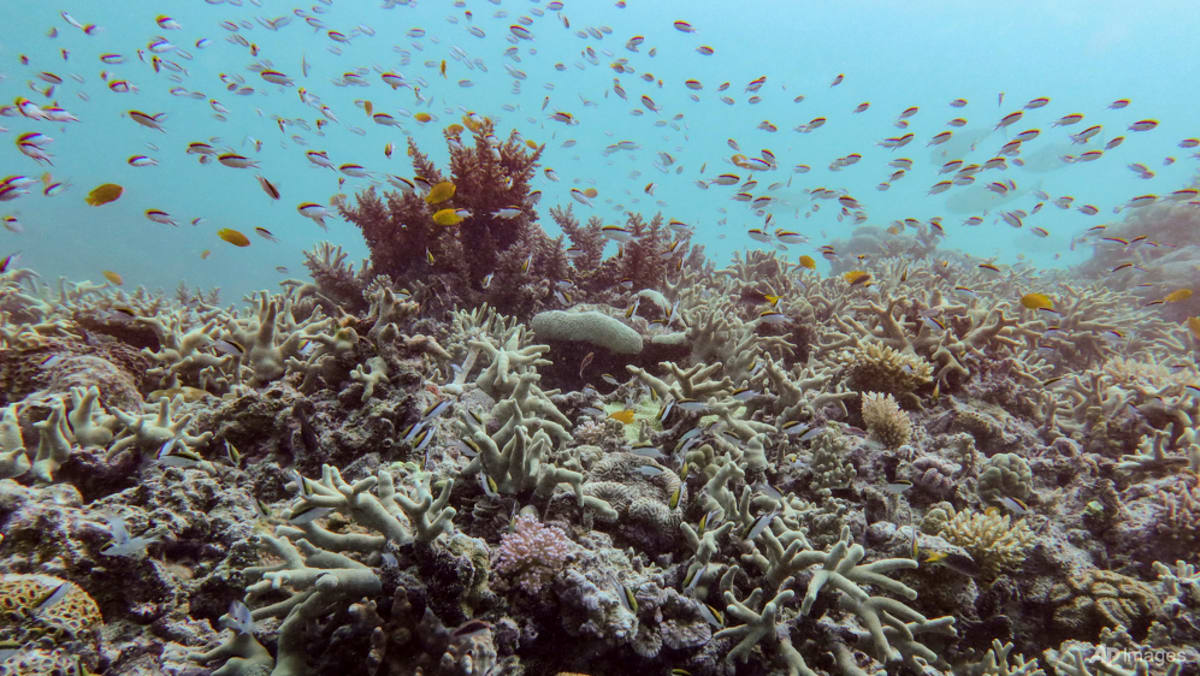“UNPRECEDENTED DIEBACK”
For coral reefs, profound and lasting changes are already in motion.
“Already at 1.4°C of global warming, warm water coral reefs are crossing their thermal tipping point and experiencing unprecedented dieback,” said the report by 160 scientists from dozens of global research institutions.
The global scientific consensus is that most coral reefs would perish at a warming of 1.5 °C above preindustrial levels – a threshold just years away.
When stressed in hotter ocean waters, corals expel the microscopic algae that provide their distinct colour and food source.
Unless ocean temperatures return to more tolerable levels, bleached corals simply cannot recover and eventually die of starvation.
Since 2023, marine scientists have reported coral mortality on a scale never seen before, with reefs turning ghostly white across the Pacific, Indian and Atlantic oceans.
“I am afraid their response confirms that we can no longer talk about tipping points as a future risk,” Lenton told reporters.
Rather than disappear completely, scientists say reefs will evolve into less diverse ecosystems as they are overtaken by algae, sponges and other simpler organisms better able to withstand hotter oceans.
These species would come to dominate this new underwater world and over time, the dead coral skeletons beneath would erode into rubble.
Such a shift would be disastrous for the hundreds of millions of people whose livelihoods are tied to coral reefs, and the estimated 1 million species that depend on them.

